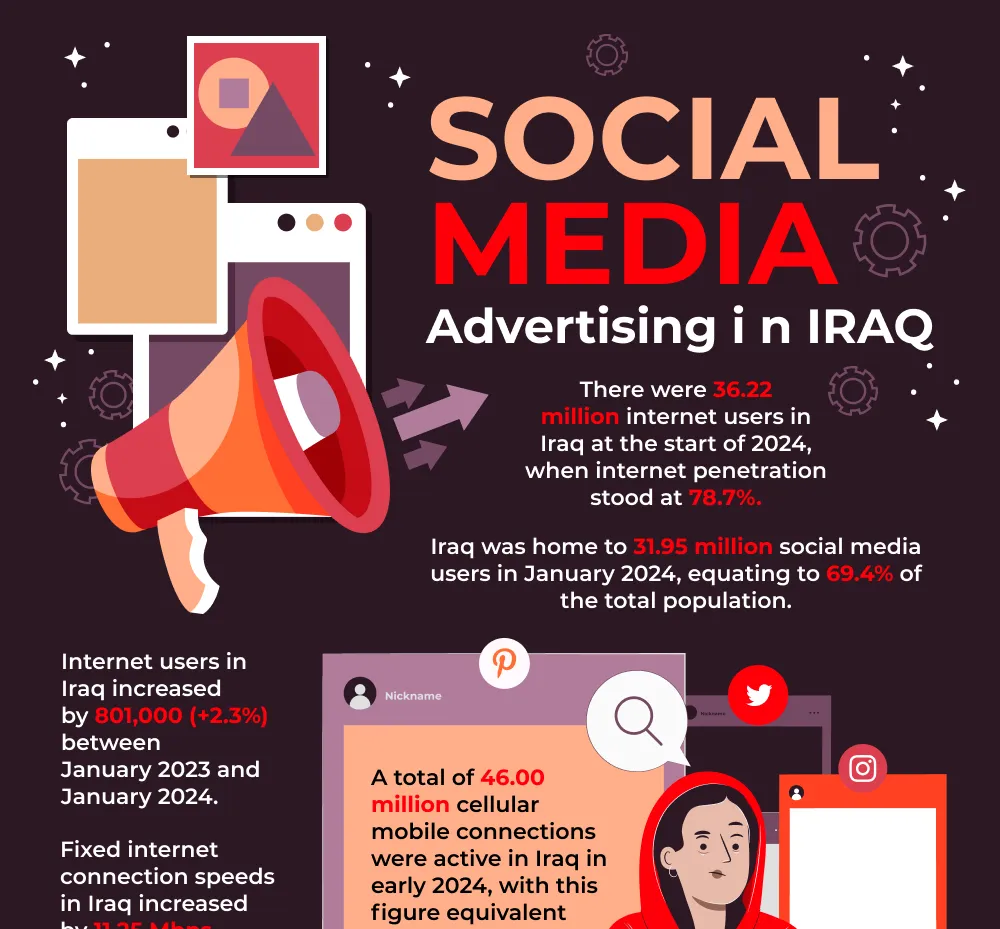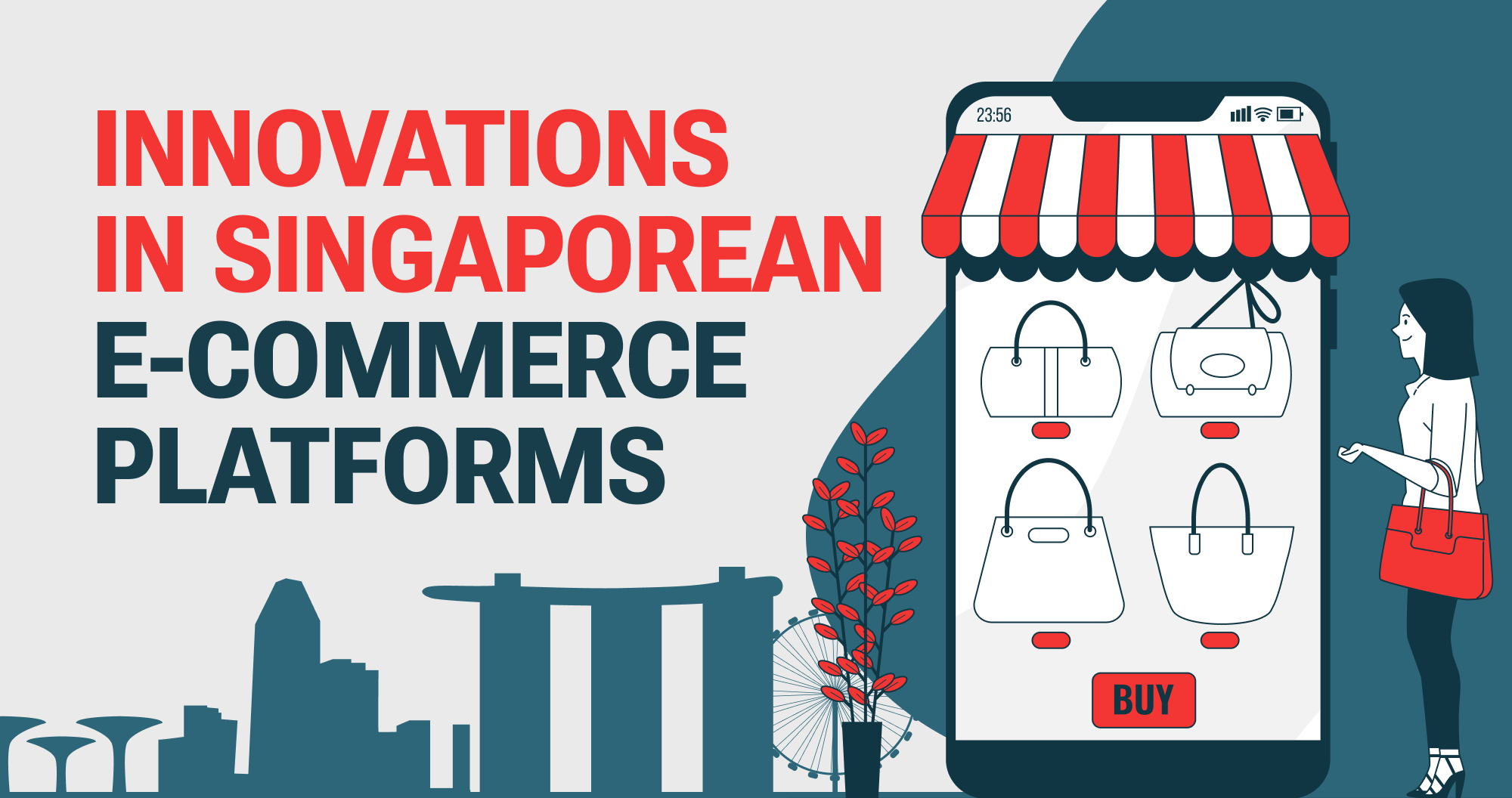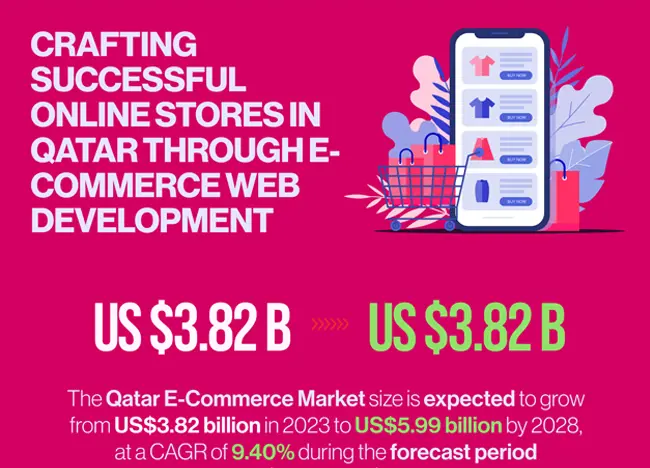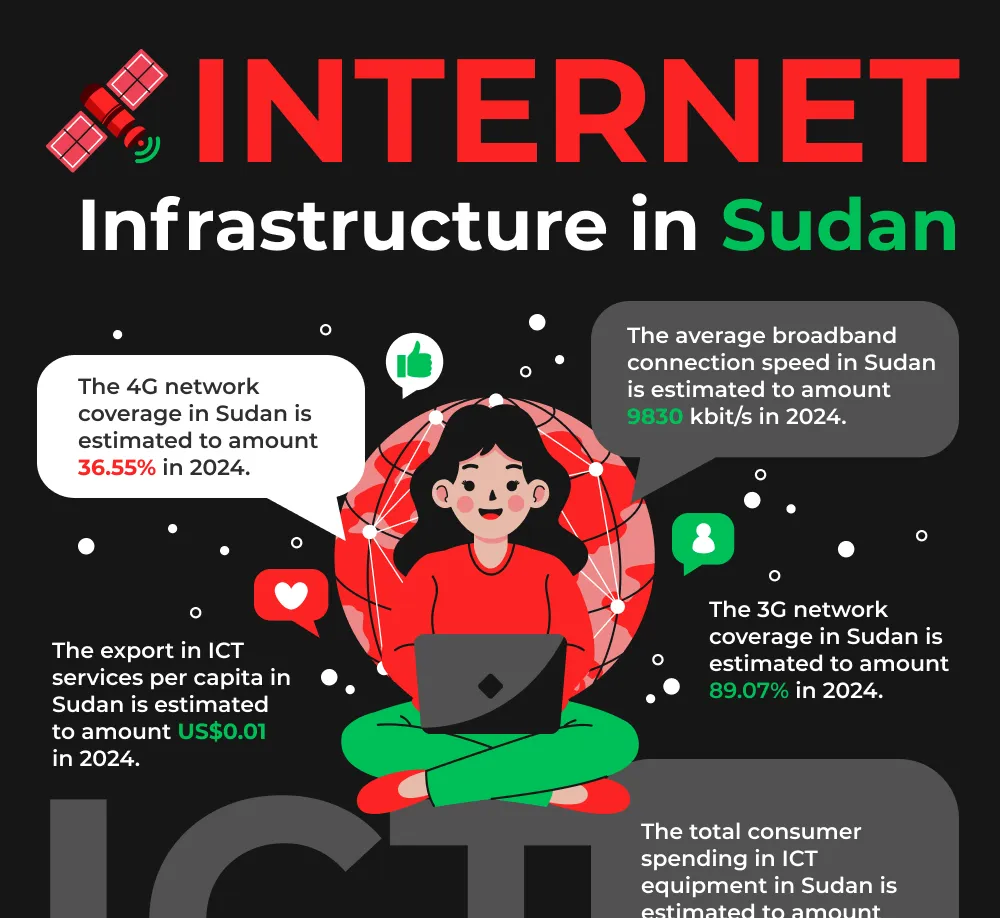Introduction
E-commerce has witnessed tremendous growth globally, and Nigeria is no exception to this trend. With an increasing number of people gaining access to the internet and smartphones, eCommerce has been rising growing in numbers and quality throughout the world. Nigeria, with its burgeoning online market, presents a vast opportunity for e-commerce success through effective utilization of social media. This article delves into the strategies and approaches to harness the power of social media for e-commerce prosperity in Nigeria. In this digital era, leveraging social media platforms effectively can significantly contribute to the success of E-commerce ventures in Nigeria.
See Also: SEO Development In Nigeria

Infographics by GO-Globe Nigeria
Understanding the Nigerian E-commerce Landscape
Nigeria's E-commerce sector has experienced remarkable growth in recent years, driven by a burgeoning middle class, increasing internet penetration, and a growing preference for online shopping. As Nigerians continue to embrace the convenience of E-commerce, businesses must understand the dynamics of this market to succeed.
The Power of Social Media in E-commerce
Social media has revolutionized the way businesses connect with their target audience. For E-commerce ventures, utilizing social media effectively can lead to enhanced brand visibility, customer engagement, and ultimately, increased sales. In Nigeria, several social media platforms are immensely popular, offering a goldmine of opportunities for E-commerce businesses. Platforms such as Facebook, Instagram, Twitter, LinkedIn, Pinterest, and YouTube are widely used, presenting a broad spectrum of users.
Leveraging Facebook for E-commerce
Facebook, being one of the most widely used social platforms in Nigeria, offers a massive user base for E-commerce businesses. Creating a compelling business page on Facebook is the initial step. Ensure your page is complete with relevant information, captivating visuals, and a clear call-to-action. Optimize it to represent your brand effectively. Tailor your content to resonate with your target audience on Facebook. Leverage appealing images, informative videos, and engaging written posts to capture attention and spark interest in your products or services. Develop targeted ad campaigns to reach specific demographics in Nigeria. Utilize features like custom audiences and lookalike audiences for optimal results. Furthermore, create or join Facebook groups related to your industry. Engage with the community, offer valuable insights, and subtly promote your products or services. Building relationships within these groups can significantly impact your e-commerce success. Last but not least, showcase new products, offer live tutorials, or conduct Q&A sessions. The live format allows for immediate interaction and fosters a sense of authenticity.
Promoting your Content on Instagram
Instagram, a visually-driven platform, is an excellent avenue for E-commerce businesses to showcase their products creatively. Begin by creating an enticing Instagram business profile. Incorporate captivating visuals, a compelling bio, and a clickable link directing users to your e-commerce website. Optimize your profile for brand representation. Furthermore, leverage the visual appeal of Instagram by showcasing your products or services creatively. Utilize high-quality images, videos, carousels, and Instagram Stories to entice and engage your audience. Collaborate with influencers relevant to your industry and target audience. Influencer marketing on Instagram can significantly amplify your reach and credibility within the Nigerian e-commerce market. Furthermore, Instagram's advertising platform allows precise targeting based on demographics, interests, and behaviors. Design eye-catching ad campaigns to reach your intended audience and drive traffic and conversions. Lastly, research and use relevant and trending hashtags to increase the discoverability of your content within the Nigerian market. Engage with popular local hashtags to broaden your reach.
Engaging the Audience with Twitter
Twitter provides a platform for direct engagement with your audience, making it an invaluable tool for E-commerce businesses. Creating an impressive Twitter profile is the first step. Ensure your profile is complete with a catchy bio, an attractive header image, a clear profile picture, and a compelling link to your e-commerce website. Building a strong presence on Twitter and engaging with customers in real-time can foster a sense of community and trust, leading to increased brand loyalty. Participate in relevant Twitter chats and join conversations related to your industry. Engage with the community, share insights, and subtly promote your products or services. Building relationships here can positively impact your e-commerce success. Twitter's advertising platform offers a range of targeting options. Design ad campaigns to reach your target audience in Nigeria, focusing on specific demographics and interests. Measure results and refine your strategies accordingly. Furthermore, identify and use popular and trending hashtags related to your industry and market. This can significantly increase the reach and visibility of your tweets within the Nigerian audience.
B2B E-Commerce Strategies via LinkedIn
For E-commerce businesses targeting the B2B market in Nigeria, LinkedIn offers a conducive environment for networking and forming meaningful partnerships. Showcase your products or services, provide comprehensive information, and ensure your profile aligns with your brand identity and target B2B audience in Nigeria. Creating a professional presence and sharing industry insights can establish credibility within the B2B sector. Share valuable content that addresses pain points and offers solutions for your B2B audience. This could include articles, whitepapers, case studies, and industry insights. Position your brand as a thought leader in the B2B e-commerce space. Join and actively participate in LinkedIn groups relevant to your industry and target audience. Share your expertise, insights, and engage in meaningful discussions. Connect with professionals in your industry, potential clients, and collaborators. Cultivate genuine relationships, provide value, and showcase your B2B offerings through these connections. Furthermore, tailor your ads to reach professionals within Nigeria who are relevant to your B2B e-commerce venture.
Video Marketing through YouTube
Video content is increasingly becoming a powerful tool for E-commerce marketing. Create engaging video content that showcases your products or services. Use high-quality visuals, compelling storytelling, and demonstrate the value your offerings bring to potential customers in Nigeria. Optimize your YouTube channel by including relevant keywords in your channel description, video titles, and descriptions. Use visually appealing thumbnails, categorize your videos, and encourage subscriptions. Collaborate with YouTubers or influencers in Nigeria relevant to your industry. Influencer partnerships can expand your reach and credibility, promoting your products or services to a broader audience. Leverage YouTube's advertising platform to reach your target audience in Nigeria effectively. Design and promote compelling ads tailored to resonate with the Nigerian market. Monitor ad performance and refine your strategy for optimal results.
Visual Appeal through Pinterest
Pinterest, known for its visual appeal, is an ideal platform for showcasing products in a visually enticing manner. Design visually appealing pins that showcase your products in the best light. Use high-quality images, vibrant colors, and clear typography to grab attention. Create themed boards that align with your brand and product categories. Organize your pins effectively to present a cohesive and appealing brand image to the Pinterest audience in Nigeria. Write compelling descriptions for your pins using relevant keywords. Describe your products in detail, highlighting their unique features and benefits for the Nigerian market. Engage with the Pinterest community by re-pinning, liking, and commenting on relevant content. Respond promptly to comments on your pins and engage in discussions related to your e-commerce niche in Nigeria. Moreover, leverage Pinterest advertising to reach a broader audience in Nigeria. Design and promote pins that align with the preferences and interests of your target market. Monitor performance and adjust your advertising strategy accordingly.
Leveraging Social Media for E-commerce Success in Nigeria: Facts, Figures and Latest Statistics
- Nigeria is the 40th largest market for eCommerce with a predicted revenue of US$6,653.5 million by 2023
- Revenue in the E-commerce market in Nigeria is expected to show an annual growth rate (CAGR 2023-2027) of 10.79%, resulting in a projected market volume of US$10,110.00 million by 2027.
- With an expected increase of 14.6% in 2023, the Nigerian E-commerce market contributed to the worldwide growth rate of 9.6% in 2023.
- In the E-commerce market in Nigeria, the number of users is expected to amount to 143.9 million users by 2027.
- User penetration in Nigeria is projected to reach 45.3% in 2023 and is expected to hit 58.6% by 2027.
- According to the National Communication Commission (NCC) in January 2023, 89% of internet users in Nigeria make purchases online, with another 24% planning to do so in the near future.
- The average revenue per user (ARPU) in the E-commerce market in Nigeria is expected to amount to US$66.23.
- The biggest player in the Nigerian eCommerce market is jumia.com.ng. The store had a revenue of US$23 million in 2022.
- B2C Ecommerce market in Nigeria is expected to grow by 12.96% on annual basis to reach US$13.1 billion in 2023.
- The B2C Ecommerce in Nigeria is expected to grow steadily over the forecast period, recording a CAGR of 9.29% during 2023-2027
- Nigeria's B2C Ecommerce Gross Merchandise Value is expected to increase from US$11.6 billion in 2022 to reach US$18.7 billion by 2027.
- In the Nigerian retail market, the online share is 1.6% and is expected to decrease by an average of 0.9% to 1.6% by 2027.
- Among Nigerian consumers, the two most popular categories for online purchases are Clothing and Shoes. 51% and 45% of consumers respectively.
- There were 122.5 million internet users in Nigeria in January 2023.
- Nigeria’s internet penetration rate stood at 55.4% of the total population at the start of 2023.
- Internet users in Nigeria increased by 2.9 million (+2.4%) between 2022 and 2023.
- There were 31.60 million social media users in Nigeria in January 2023.
- 25.8% of Nigeria’s total internet user base (regardless of age) used at least one social media platform in January 2023.
- Facebook had 21.75 million users in Nigeria in early 2023.
- Facebook’s ad reach in Nigeria was equivalent to 9.8% of the total population at the start of 2023.
- YouTube had 31.60 million users in Nigeria in early 2023.
- YouTube’s ad reach in early 2023 was equivalent to 14.3% of Nigeria’s total population at the start of the year.
- Instagram had 7.10 million users in Nigeria in early 2023.
- Instagram’s ad reach in Nigeria was equivalent to 3.2% of the total population at the start of the year.
- LinkedIn had 7.50 million “members” in Nigeria in early 2023.
- LinkedIn’s audience in Nigeria was equivalent to 3.4% of the total population at the start of 2023.
- LinkedIn ’s potential ad reach in Nigeria increased by 1.2 million (+19%) between 2022 and 2023.
- Twitter had 4.95 million users in Nigeria in early 2023.
- Twitter’s potential ad reach in Nigeria increased by 4.6 million (an unprecedented+1,421%) between the start of 2022 and early 2023.
- Snapchat had 12.35 million users in Nigeria in early 2023.
- Snapchat’s potential ad reach in Nigeria increased by 2.9 million (+30%) between the start of 2022 and early 2023.
Nigeria E-commerce Market Percentage Division by Categories
- Electronics & Media - 41.2%
- Fashion - 18.9%
- Furniture & Appliances - 16.4%
- Food & Personal Care - 13.3%
- Toys, Hobby & DIY - 10.2%
Nigeria Retail Shopping Ecommerce Market Key Players
- Jiji
- Jumia
- Konga
- PayPorte
- Slot
Nigeria Travel Ecommerce Market Key Players
- Bolt
- GiDiCab
- Rida
- Travelstart
- Wakanow
Nigeria Food Service Ecommerce Market Key Players
- Chopnownow
- Domino's Pizza
- GoFood
- Jumia Food
- SoFresh
Related: Digital 2022: Nigeria [Infographic]
Challenges and Solutions
While leveraging social media for E-commerce success in Nigeria, businesses may encounter challenges such as fierce competition, changing consumer preferences, and evolving algorithms. Implementing strategies like targeted advertising, engaging content creation, and data analytics can address these challenges effectively. Some of the possible challenges are mentioned below:
Limited Internet Penetration and Access
A significant challenge in Nigeria is the limited internet penetration and access in certain regions. Many potential customers may not have reliable access to the internet, hindering the reach of e-commerce platforms.
Solution
To tackle this, e-commerce businesses can employ a multi-pronged approach. Utilise mobile-friendly platforms, develop offline marketing strategies, and work on improving internet infrastructure in collaboration with relevant authorities.
Trust and Security Concerns
In Nigeria, trust issues concerning online transactions and data security prevail. Consumers are often hesitant to share sensitive information or make purchases online due to fears of fraud and data breaches.
Solution
E-commerce platforms should focus on building trust through transparency and security measures. Implement robust data encryption, educate customers on online safety, and showcase positive customer reviews and testimonials to build credibility.
Payment Challenges and Preferences
Navigating the diverse payment preferences in Nigeria can be challenging. Cash-on-delivery remains popular due to the apprehension around online payments and limited access to banking facilities.
Solution
E-commerce ventures should offer a variety of payment options, including cash-on-delivery, mobile money, bank transfers, and secure online payment gateways. Clearly outline payment options during the purchase process to reassure customers.
Logistics and Last-Mile Delivery
The logistics infrastructure in Nigeria can be inefficient, leading to delayed deliveries and unsatisfactory customer experiences. Navigating the last-mile delivery is particularly challenging in both urban and rural areas.
Solution
E-commerce platforms need to partner with reliable logistics companies with extensive reach. Implement effective order tracking systems, maintain clear communication with customers, and explore innovative delivery solutions to enhance the overall logistics process.
Read More: Nigerian Shopify Superstars
Conclusion
Leveraging social media for E-commerce success in Nigeria is no longer an option but a necessity. Mastering the art of leveraging social media for e-commerce success in Nigeria is a dynamic and rewarding journey. The power of social platforms to connect, engage, and convert users into customers cannot be underestimated. E-commerce ventures that harness the potential of social media will undoubtedly position themselves for growth and success in the dynamic Nigerian market.
FAQs (Frequently Asked Questions)
Q1: Can I use multiple social media platforms for my E-commerce business in Nigeria?
A: Yes, utilizing multiple platforms can enhance your reach and engagement with a diverse audience, contributing to your E-commerce success.
Q2: Are there any specific regulations I should be aware of when using social media for E-commerce in Nigeria?
A: Absolutely. Nigerian E-commerce businesses should comply with regulations related to data privacy, consumer protection, and online transactions to operate legally and ethically.
Q3: How can I measure the effectiveness of my social media marketing efforts?
A: Key performance indicators (KPIs) such as engagement rate, website traffic, conversion rate, and customer acquisition cost can help you gauge the success of your social media marketing campaigns.
Q4: Is video content essential for social media success in E-commerce?
A: Video content is highly effective in engaging the audience and driving conversions. Integrating videos into your social media.
Q5: How can I handle payment challenges in Nigerian e-commerce through social media?
A: To tackle payment challenges, employ reliable payment gateways and clearly communicate accepted payment methods. Provide a seamless user experience, which includes a secure and straightforward payment process.
Q6: What strategies can enhance my brand's visibility on social media in Nigeria?
A: Consistency is key. Regular posting, engaging content, and utilizing trending hashtags will boost your brand's visibility. Additionally, collaborate with influencers and run targeted ad campaigns to reach a broader audience.
Q7: How can I measure the effectiveness of my social media efforts in Nigeria?
A: Utilize analytics tools offered by social media platforms to measure the performance of your posts, ads, and overall presence. Analyze metrics such as reach, engagement, and conversion rates to make informed decisions.
Q8: How can I build a strong community on social media for my e-commerce business in Nigeria?
A: Engage with your audience by responding to comments, messages, and feedback. Run interactive campaigns, contests, or giveaways to encourage participation and foster a sense of community around your brand.






